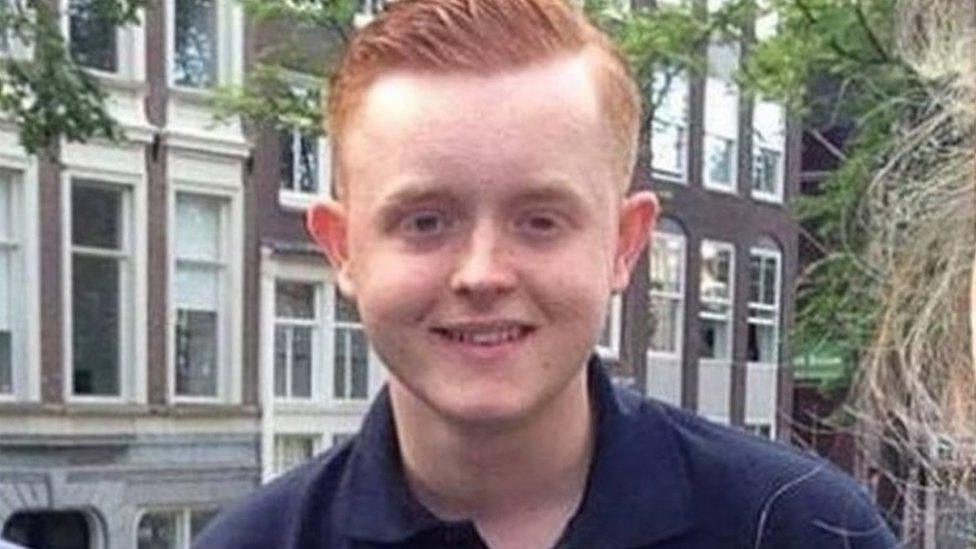Westminster Bridge terror attack: Survivor launches counter radicalisation plan
- Published
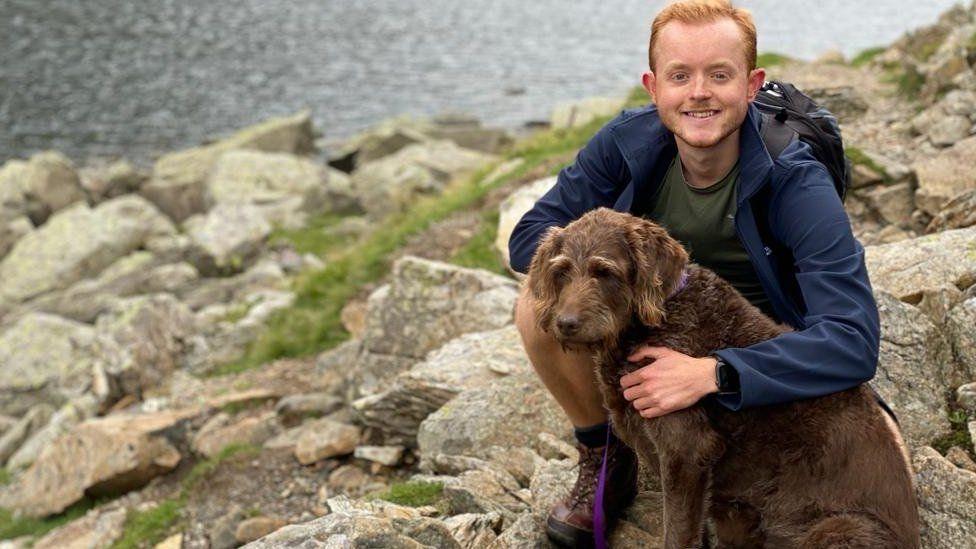
Travis Frain counts himself very lucky to have survived the terror attack in London four years ago.
A survivor of the 2017 Westminster Bridge attack is using voice recordings of terror victims as a way of trying to prevent people from being radicalised.
Travis Frain, of Darwen in Lancashire, set up the Resilience in Unity Project, external while working at home during lockdown.
The 23-year-old's website includes the testimony of more than 30 people who survived attacks in 15 countries.
The PhD student said his project would be "worthwhile" if it stops even only one person from becoming radicalised.
His website will also contain an interactive mapping tool, exhibiting survivors' stories for use in schools, colleges and universities.
"Even just stopping one person from being radicalised, stopping one attack from happening, will make a massive difference to hundreds of lives," said Mr Frain.
"We too often forget the community impact that terrorism has, in dividing and reaching out along generations and networks of family members, in addition to the geographical spread."
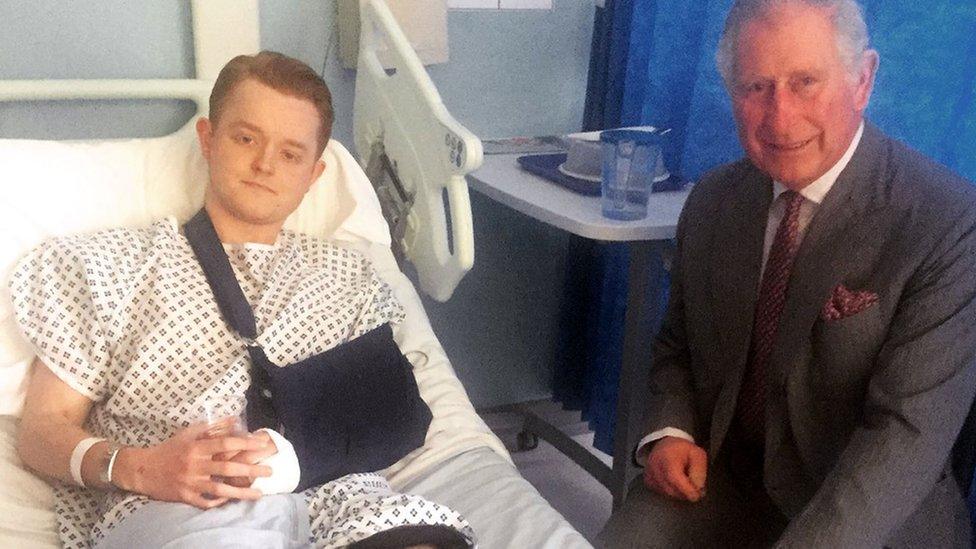
Travis Frain was visited by the Prince of Wales while he recovered in hospital
Mr Frain was on a trip to London with Edge Hill University, visiting the Houses of Parliament, when he was struck by a car driven by Khalid Masood.
He suffered multiple fractures in the attack on 22 March 2017 but has since recovered.
Masood, 52, was shot dead by police after he killed four people and injured 50 more when he ploughed into crowds on the bridge before stabbing PC Keith Palmer.
Mr Frain considers himself to be "incredibly lucky" to have survived.
His website was launched at an event in the City of London attended by 200 people, including more than 50 survivors.

Why not follow BBC North West on Facebook, external, Twitter, external and Instagram, external? You can also send story ideas to northwest.newsonline@bbc.co.uk
Related topics
- Published17 March 2021
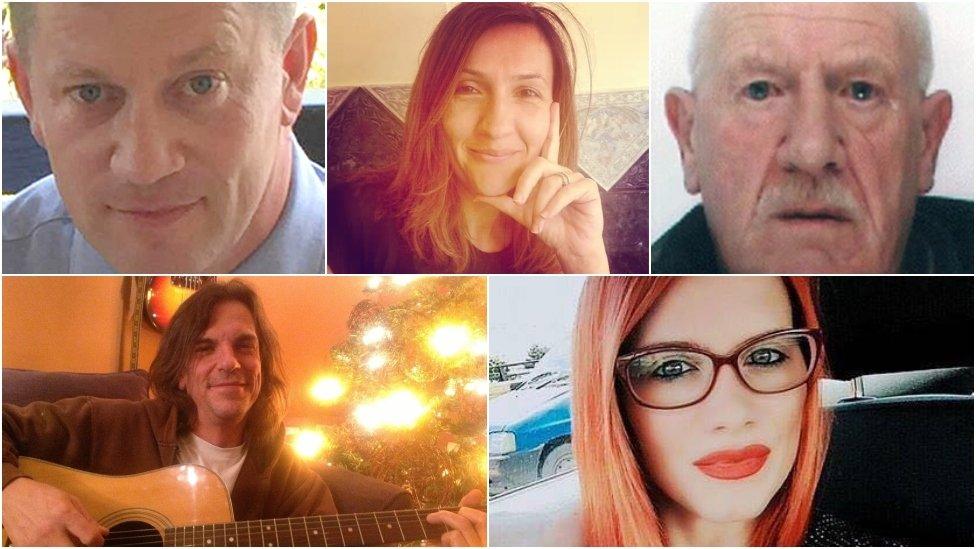
- Published22 March 2021

- Published24 March 2017
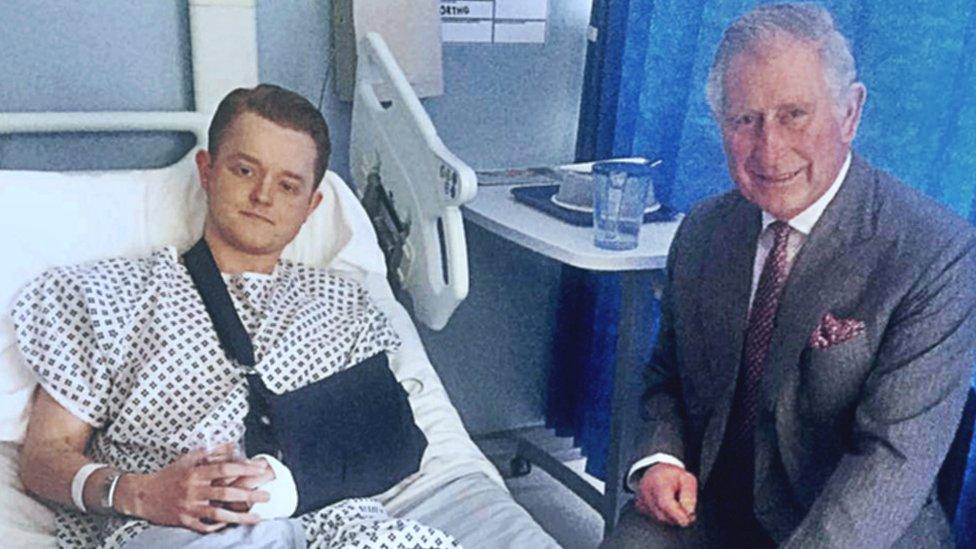
- Published23 March 2017
